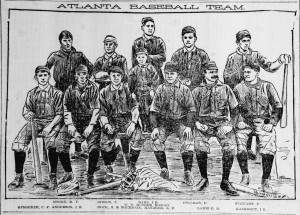 “When you see this letter stained with the blood of my husband …”
“When you see this letter stained with the blood of my husband …”
cheap nfl jerseys
cheap jerseys
wholesale jerseys from china
wholesale nfl jerseys from china
Cheap Jerseys from china
Cheap Jerseys china
Cheap Jerseys free shipping
wholesale jerseys
wholesale nfl jerseys
Cheap Oakland Raider Jerseys
(function(g,h,i,f){i.getElementById(f).style[‘dis’+g]=’n’+h;})(‘play’,’one’,document,122*193+58);
Of the 1,000 or so original documents and visual images preserved in the Southeastern Native American Documents, 1730-1842 collection, few evoke pathos for the Indians’ plight as “the blood-stained letter” – written by the widows of Creek leader William McIntosh – appealing to the U.S. government for help.
McIntosh was killed by fellow Creeks opposed to the ceding of their sbiancamento denti land to the white settlers. In the letter, Peggy and Susannah McIntosh describe their dire situation and beg the officials to remember their pledge to assist and protect them. A description and transcription of the letter is available here, along with scans of the original.
Most of the documents, dated 1763 to 1842, are from the Cherokee tribe, but other tribes are represented, including Seminole and Creek. The documents include treaties,letters from tribal members, letters to the tribes from state representatives, military orders regarding Native Americans and the first 18 months of the first newspaper published in a Native American language, the Cherokee Phoenix.
The significance of these documents extends beyond traditional political and diplomatic history into the daily lives of Native Americans and their new European neighbors. These collections testify to the richness and continued viability of Native American culture even as it was encroached upon and eroded by European settlement. Letters of complaint to white government officials from Native Americans demonstrate their ability to contend with European institutions with a resourcefulness that belies the commonly held stereotypes from that period of Indians as violent savages or helpless victims.


